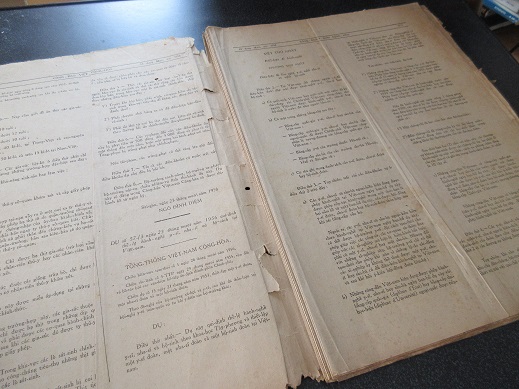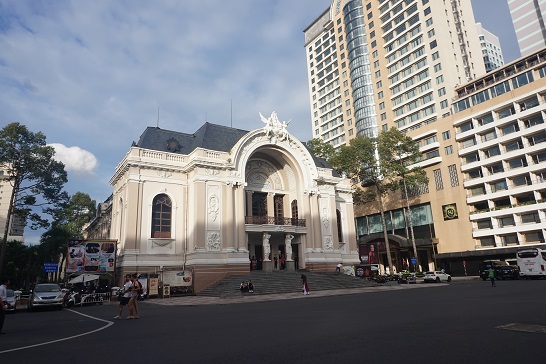- Project Leader : Kitagawa Naohiro (Kyoto University, Graduate School of Asian and African Area Studies)
Outline of Research
This study will assess the relationship between religion and politics in the Republic of Vietnam. At that time, the Buddhist Sangha was one of the country’s largest political groups, with many political monks and several politicians within its membership. However, it remains unclear as to how the sangha gained access to political power. By examining the Vietnamese Gazette and other historical documents, this research will consider the political and social situation in South Vietnam that enabled such conditions.
Description
This study will assess the relationship between religion and politics in the Second Republic of Vietnam (1967–1975) with a focus on religious politicians.
The Republic of Vietnam, the country that existed from 1955 to 1975, is known for its corruption and dictatorship. Anti-government demonstrations led by the Unified Buddhist Sangha of Vietnam were frequent from the 1960s until the nation collapsed. Intellectuals at that time highly valued this Buddhist movement against authority. However, it remains difficult to uncover basic information about South Vietnam, such as its political processes, administrative mechanisms, and social structures.
To address this gap in information, this study focuses on the Buddhist Sangha as the largest political group in South Vietnam at the time, with many political monks and several politicians within its membership. How did the Sangha gain political power and for what purpose? By analyzing historical documents (including the Official Gazette and the National Conference Minutes), located in the CSEAS library, this study aims to answer these questions.
More broadly, this study is an attempt to clarify the political and social situation in Vietnam during 1967–1975, including the process of political change and the influence of sects and communists on the diet. Therefore, the findings of this study are expected to contribute not only to understanding the domestic situation, but also to the development of comparative research in Asia.
 Official Gazette of the Republic of Vietnam |
 Saigon Opera House (the Republic of Vietnam Lower House of Parliament) |
